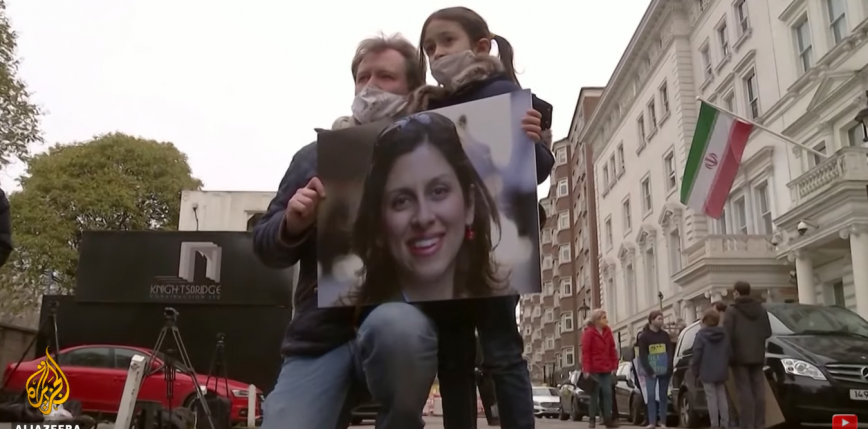An Iranian court has sentenced a British-Iranian activist for the Reuters Foundation, Nazanin Zaghari-Ratcliffe, to another year in prison. As her lawyer told her on Monday (April 26), the woman heard new charges a few weeks after her release from house arrest, during which she was ending a five-year prison sentence, four of which were in prison.
Nazanin Zaghari-Ratcliffe, an Iranian and British woman, led the Thomson Reuters Foundation charity project. In 2016, while she and her daughter were waiting for a flight to London, she was arrested at Tehran airport and convicted of espionage and plotting to overthrow the government. The anti-Iranian propaganda that cultivated it was supposed to be voiced, among other things, by participating in a protest in front of the Iranian embassy in London 12 years ago. The woman spent four years in prison, and as of March 2020, she is under house arrest.
Her family, including a several-year-old daughter, had been hoping Zaghari Ratcliffe would return home in London after his release from house arrest last month. But this will not happen, because the woman was summoned to court, where more charges were heard.
He showed the defendant’s lawyer the verdict and did not give any copy of it. Another sentence that Zaghari Ratcliffe will serve is one year in prison and a one-year travel ban, which likely means that the woman will not be able to return to the UK for at least two consecutive years. Her lawyer announced that he would appeal the verdict.
British Foreign Secretary Dominic Raab said that the Iranian court’s decision is Completely inhuman and completely unjustified. The British Prime Minister is also convinced that the verdict was wrong.
Boris Johnson, then Secretary of State, stated in one of his statements in 2017 that Zaghari-Ratcliffe had trained journalists in Iran. Aware of the consequences of this statement, Johnson withdrew from it, but Iranian authorities eagerly picked up the message and used it to argue that the accused had conspired against the government.
The Nazanin Zaghari-Ratcliffe family says Iran is using women as bargaining chips in negotiating over £ 400m for a arms contract in the 1970s the UK accepted payment but never materialized (he argued that the contract was not fulfilled before the outbreak of the Islamic Revolution).) Iranian authorities say the judiciary is independent and that the Zaghari-Ratcliffe case is not linked to any other cases.
The Iranians, who did not recognize the dual nationality institution, prevented the British consul from gaining access to the imprisoned woman.
Źródło: Reuters, BBC, The Guardian
Susanna Ptaszyńska
Student in International Relations and American Studies at the University of Warsaw. Passionate about the history of popular culture and all that is British.







